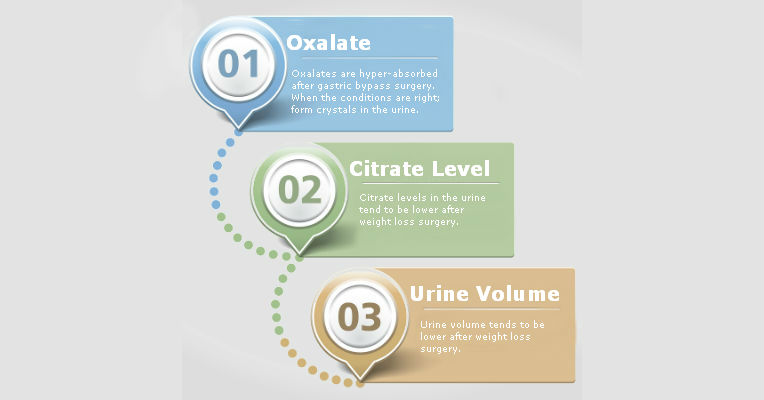The good news is that studies have identified the type of kidney stones most common following bariatric surgery—calcium oxalate stones. At least three factors seem to contribute to this.
- Oxalate (found in many foods) seems to be hyper absorbed in the intestinal tract after gastric bypass surgery. This oxalate finds it way through the body and into the urine for excretion, creating a high urine oxalate concentration. When the conditions are right, oxalate will form crystals that can group together to form kidney stones.
- Citrate levels in the urine tend to be lower after gastric bypass surgery.
- Urine volume tends to be lower after gastric bypass surgery.
The bad news is that it appears that the risk of kidney stones increases, rather than decreases, over time after bariatric surgery. More good news–there are some simple changes that you can make to your diet that will minimize your risk.


